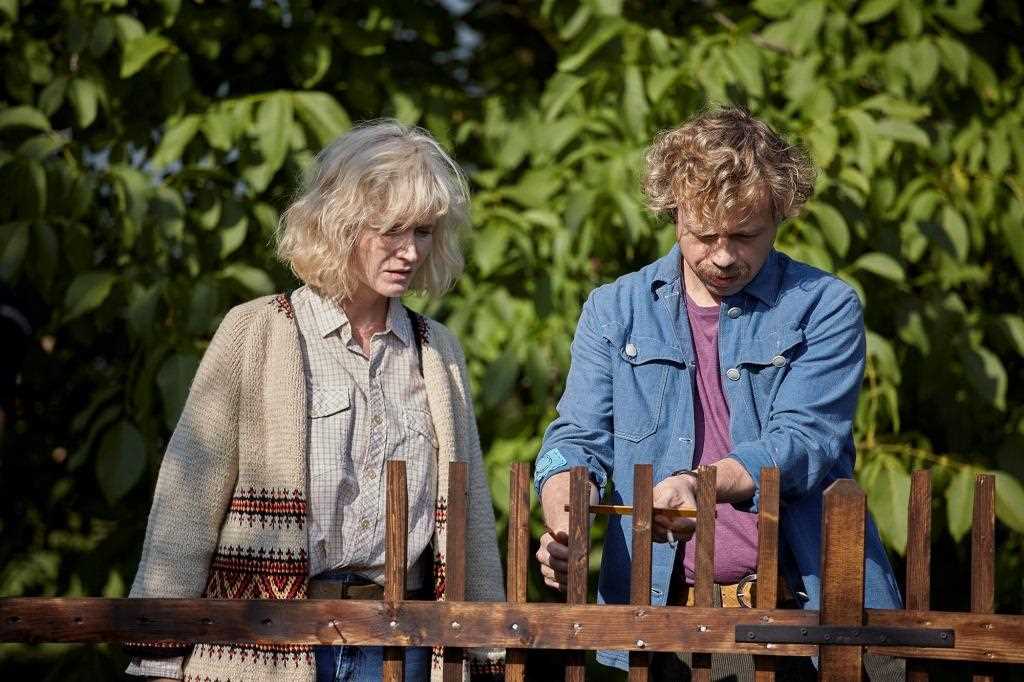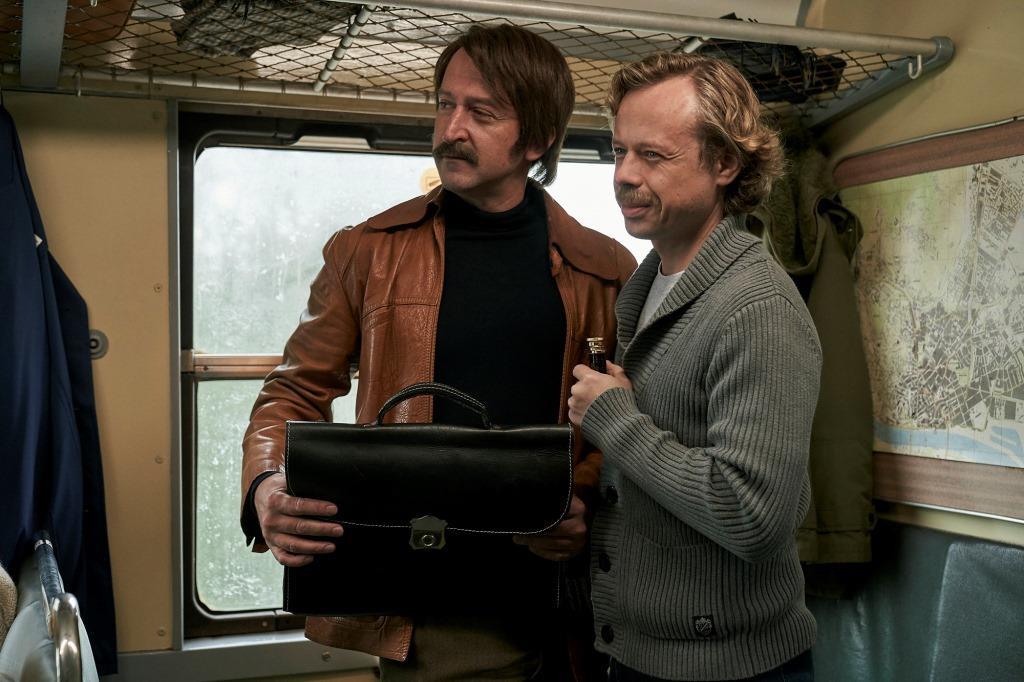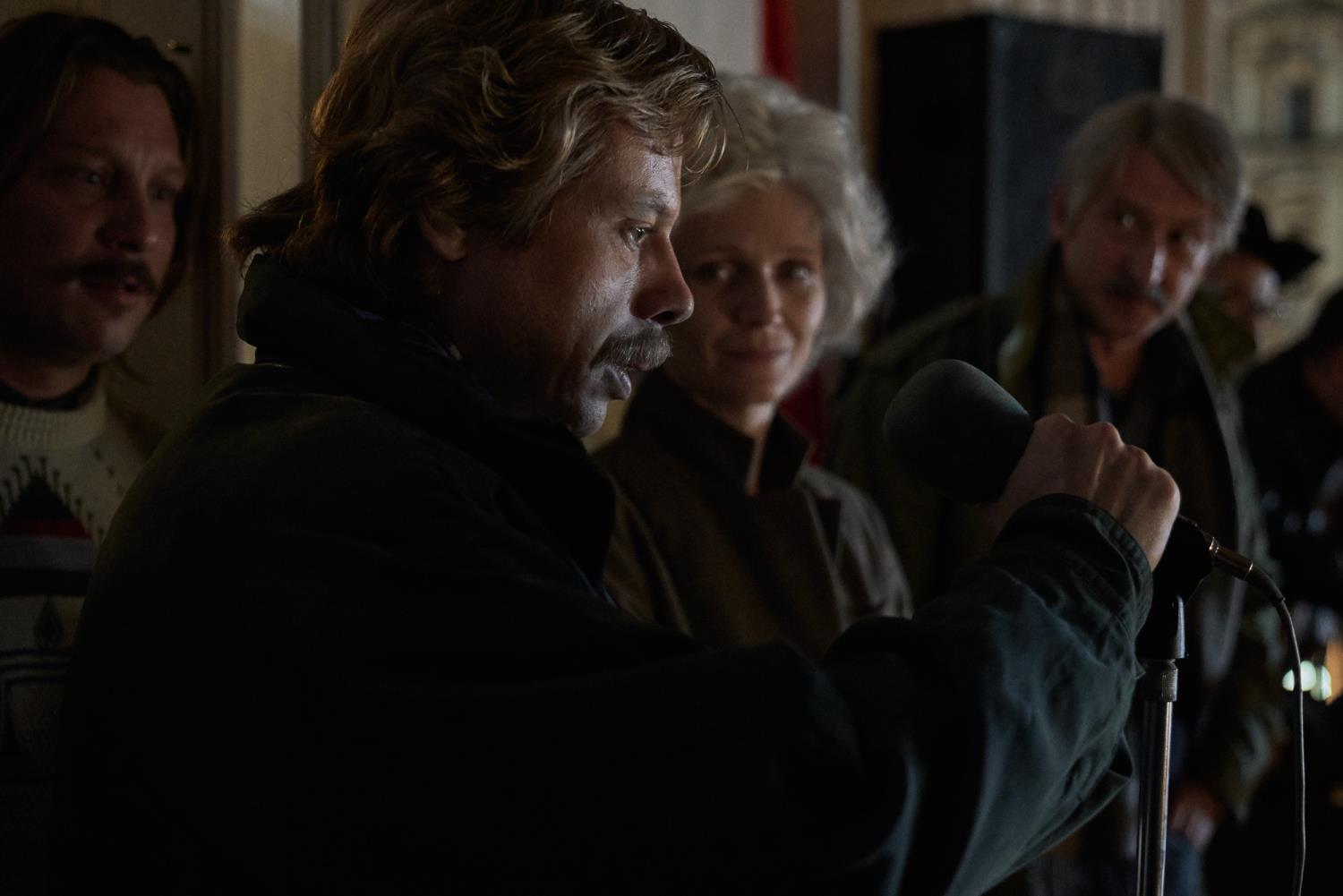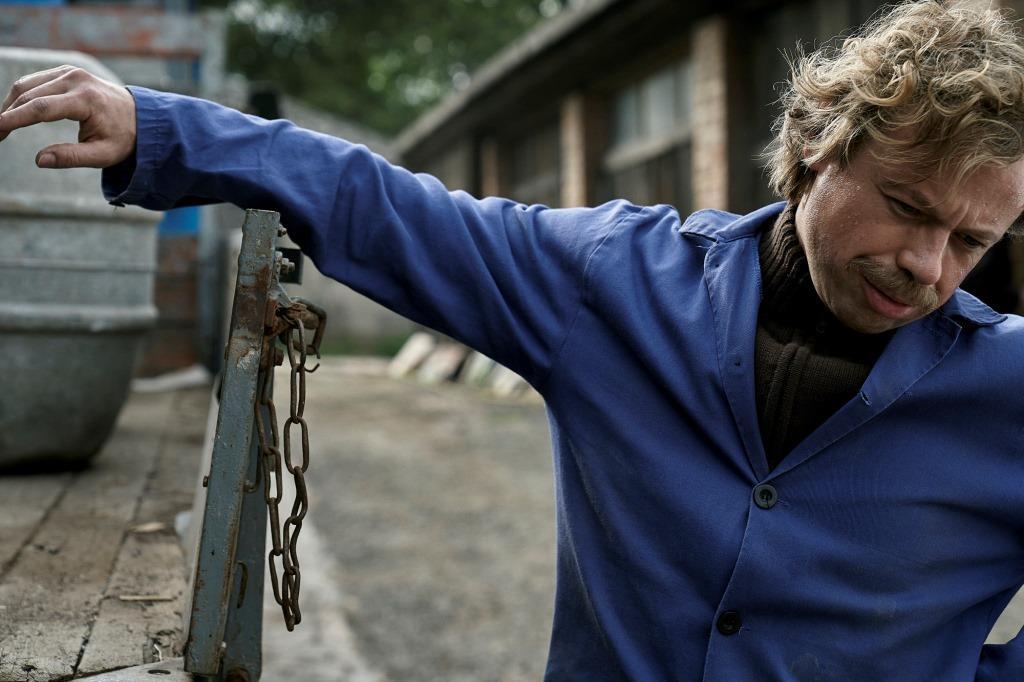It would be hard to tell the whole life story of former Czech president Václav Havel in one film. The new biopic Havel just covers the Normalization era, from 1968 to ’89, the key time in his transformation from a playwright into a politician.
The film, mostly in Czech but with English subtitles at select screenings, is aimed at an audience with a decent knowledge of Czechoslovak history. Little time is spent introducing characters such as Communist Party First Chairman Alexander Dubček (played by Adrian Jastraban), who tried to institute free speech reforms in 1968.
Even the Warsaw Pact invasion in August 1968 is handled with out much fanfare. The text of Charter 77, while it plays a big role in the plot, is only briefly alluded to. This puts the audience in a sink of swim situation, but spares them the awkward scenes where characters explain to each other things that they already know.
One scene takes place just before Christmas on St Nicholas Eve, with Havel dressed as a devil. Without some knowledge of Czech holiday traditions, this would just seem bizarre.
Viktor Dvořák plays the title character, and benefits greatly from a close resemblance to the real Havel, though he is a bit slighter in build.The role requires a huge range — from the charming playboy to the tortured convict. Dvořák, who has an extensive theater background including winning the Thalia Award, avoids overplaying at either end of the spectrum.
After a brief opening set sometime in the 1980s with Havel being interviewed in somewhat halting English the film jumps to events just days before the 1968 invasion, with Havel at the opening of one of his plays. He is shown as a bit of a playboy — drinking heavily and chasing after various actresses, despite his marriage to Olga Havlová (Anna Geislerová).

Geislerová bears less physical resemblance to her real-life counterpart but she is one of the strongest actresses in Czech cinema, and that is needed for the difficult role of the woman who stands behind Havel on the tough path he chooses. The inevitable domestic arguments are downplayed, keeping the film from tipping over into being a turgid domestic melodrama.
A third main figure in the tale is Pavel Landovský (Martin Hofmann), an actor, playwright and director who serves as a sounding board for Havel — someone he can express his ideas to. Landovský is shown as a bit of a loose cannon, drinking too much and talking too loudly, risking getting everyone in unnecessary trouble.
After the invasion, one of the film’s themes pops up — Havel is asked to sign a political declaration that would allow him to continue to work in the theater. Pens and blank paper punctuate the film as people are forced to decide to either go with the flow or make a perhaps costly stand.

The film skips ahead in time twice more. First it goes to the late 1970s when Havel became involved with the dissident band The Plastic People of the Universe (who are, again, just barely identified) and the Charter 77 movement. The film skips ahead next to 1989, with events that should be well-known to most people.
Director Slávek Horák, who co-wrote the screenplay with Rudolf Suchánek, adds some inspired touches that bring Havel a notch above other Czech biopics. The 1960s was the time of Czech New Wave in cinema, and Horák makes a few nods to this style. One is that in some important scenes part of the set is whisked away and a theater audience is seen watching the events.
The gimmick is used just enough that it helps to add some flair without becoming a distraction. It also helps to emphasize Havel’s occupation as a playwright and point out that much of what happened under Normalization was grotesque political theater.

The re-creation of the era, with its dilapidated buildings and quaint but grubby pubs is excellent, but that is usually the case as many of the locations are still easy to find. One of the films few drawbacks is Dvořák’s dark eye makeup that at random times is overdone, more suitable for a villain even though it seems to be at time he is at his least villainous.
This was not Dvořák’s first time playing Václav Havel. He had a brief scene in The Prague Orgy, meeting Philip Roth’s literary alter ego Nathan Zuckerman. The scene oddly also involves Havel being faced with having to sign a document.
There have been a few recent films about real-life Czechoslovakfigures, and Havel is by far the best, if you can bring the basic background to follow the events. The decisions both to film in the Czech language and play for an audience that mostly understands the events keeps the dialogue natural and the pace brisk.

The 2017 film Milada, while it told the compelling story wrongly executed judge Milada Horáková, had an international cast acting in English, and it never overcame some basic stiffness associated with that. The 2016 film Masaryk looked quite good but suffered from a too-fanciful story not rooted in facts, as well as rather some awkward scenes in English with people who should have been native speakers struggling with the accent.
The life of Jan Palach, who set himself on fire to protest the Warsaw Pact invasion, has also been covered both in the 2018 film Jan Palach and the 2013 miniseries Burning Bush. Both were critically acclaimed.
There was also a very good telling of the life of the last woman executed in Czechoslovakia called I, Olga Hepnarová(Já, Olga Hepnarová), but it really can’t be compared to the others as politics plays a very minor role.
Havel
Directed by Slávek Horák
With Viktor Dvořák, Anna Geislerová, Martin Hofmann, Barbora Seidlová, Stanislav Majer, Jiří Bartoška, Adrian Jastraban
In Czech, with English subtitles as some theaters
Havel isshowing with English subtitles through the end of July and early August at Světozor, Oko, Aero, Přítomnost, Edison, Kino Pilotů and Dlabačov. Some (but not all) screenings at Cinema City Slovanský dům also have English subtitles. Check on the websites of the individual theaters for further information.












 Reading time: 5 minutes
Reading time: 5 minutes 






























